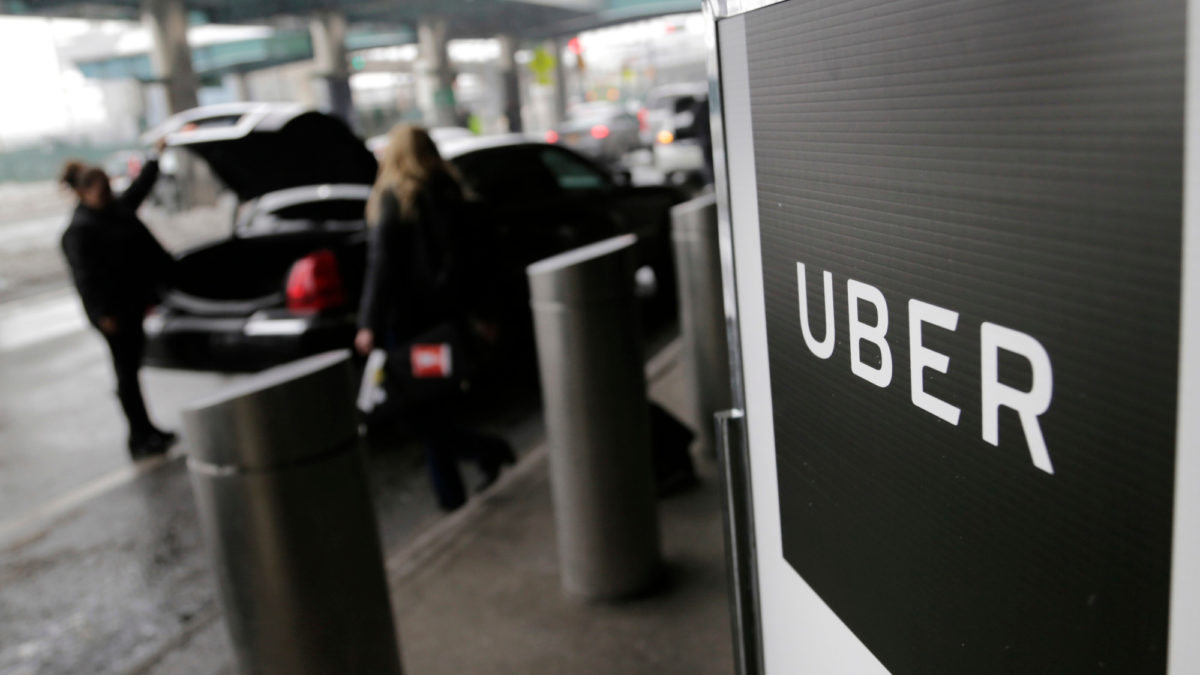Freight News:
IRS tax changes poised to snare gig workers, online sellers
Passage of the American Rescue Plan Act by Congress in 2021 marked one of the top achievements of the Biden administration to date.
The $1.9 trillion COVID-19 relief bill provided funding for a number of projects across the country, extended financial relief to those still recovering from the impact of the pandemic and amended a section of the Internal Revenue Service tax code, specifically Section 6050W.
It is that last item, the tax code change, that has the IRS and others scrambling to educate taxpayers that could be facing larger tax bills this year.
“As taxpayers gather tax records, they should remember that most income is taxable. This includes unemployment income, refund interest and income from the gig economy and digital assets,” the IRS wrote in a news bulletin last week.
The Coalition for 1099-K Fairness has reportedly been lobbying Congress to get a reprieve from the change to section 6050W.
“Without timely congressional action, millions of Americans and fledgling micro-businesses will begin receiving 1099-Ks in January 2023, often in instances where there is no tax liability whatsoever, creating significant confusion and administrative challenges,” the coalition said.
The group includes an assortment of e-commerce platforms, including eBay (NASDAQ: EBAY), Etsy (NASDAQ: ETSY), Poshmark (NASDAQ: POSH), Mercari (OTC US: MCARY), Airbnb (NASDAQ: ABNB) and PayPal (NASDAQ: PYPL).

What is Section 6050W?
Section 6050W of the IRS code details the level of income someone must make before they have to pay federal taxes. Prior to the recent change, those that made less than $20,000 and conducted fewer than 200 transactions in a tax year were exempt from paying taxes on those earnings. That dollar figure has now dropped to $600 and there is no longer a minimum number of transactions.
This exempted many making money from gig economy jobs, such as (NYSE: UBER), Lyft (NASDAQ: LYFT) and DoorDash (NYSE: DASH), online sellers on platforms such as Etsy and even those on Walmart Marketplace (NYSE: WMT) and Amazon Marketplace (NASDAQ: AMZN).
“There is a segment of the population that is probably making ends meet and, of course, they should be aware of their tax obligations,” Katie Vlietstra, vice president of government relations and public affairs for the National Association for the Self-Employed (NASE), told Modern Shipper earlier this year. “But as they try to cobble together an income, should we be going after these people?”
Vlietstra said NASE believes all sellers and gig economy workers should be meeting their tax obligations, but the new requirement, which went into effect Jan. 1, 2022, could have unintended consequences.
“Every individual should be meeting their tax obligation,” she said. “They should understand their tax liabilities. Our concern is … when you are making big fundamental changes, there isn’t a lot of emphasis placed on the technical changes.”
The IRS estimates the tax change will generate $8.4 billion in additional tax revenue over a decade.

Who is reporting this?
Due to the change, workers are now required to claim any income that exceeds $600 on their taxes, and any business that pays them will be required to submit a 1099-K to the IRS on the individual’s behalf. That means Uber and Lyft will be sending documents to the IRS detailing how much they paid each driver — but so will PayPal, Venmo, Etsy and Amazon.
The reporting does get tricky, though, and just because there may be a transaction over $600 doesn’t mean it needs to be reported to the IRS.
“For example, if you received payment through a personal Cash App account during the year, those transactions won’t be reported on a 1099-K,” explained Kelley R. Taylor, writing for Kiplinger. “That’s because that personal Cash App account is designed for noncommercial use, like sending a friend money because you’re splitting the cost of a meal. But if you have a Cash for Business account with Cash App, and your transactions exceed the $600 tax reporting threshold, you will likely receive a 1099-K.”
Zelle has noted that it is not required to report transactions on its platform to the IRS.
Concern grows over the uneducated
A February survey by the Coalition for 1099-K Fairness found 47% were unaware of the IRS change that took effectJan. 1. Of the respondents, 86% made less than $5,000 selling online in 2021, and 89% said selling was not their primary source of income.
That is the message the IRS is now trying to get out.
There are several bills in Congress that would return the threshold to $20,000 and one by Sen. Maggie Hassan (D-N.H.) that would set the limit to $5,000. Whether any of them can be passed during the lame-duck session before the next Congress is seated in January remains to be seen.
Click for more Modern Shipper articles by Brian Straight.
You may also like:
COVID didn’t kill gig economy, the pandemic accelerated it
Bringg, flexible labor platform WorkWhile launch The Driver Network
Gig driver for a day. Here’s what we learned making deliveries for Veho
The post IRS tax changes poised to snare gig workers, online sellers appeared first on FreightWaves.
Source: freightwaves - IRS tax changes poised to snare gig workers, online sellers
Editor: Brian Straight